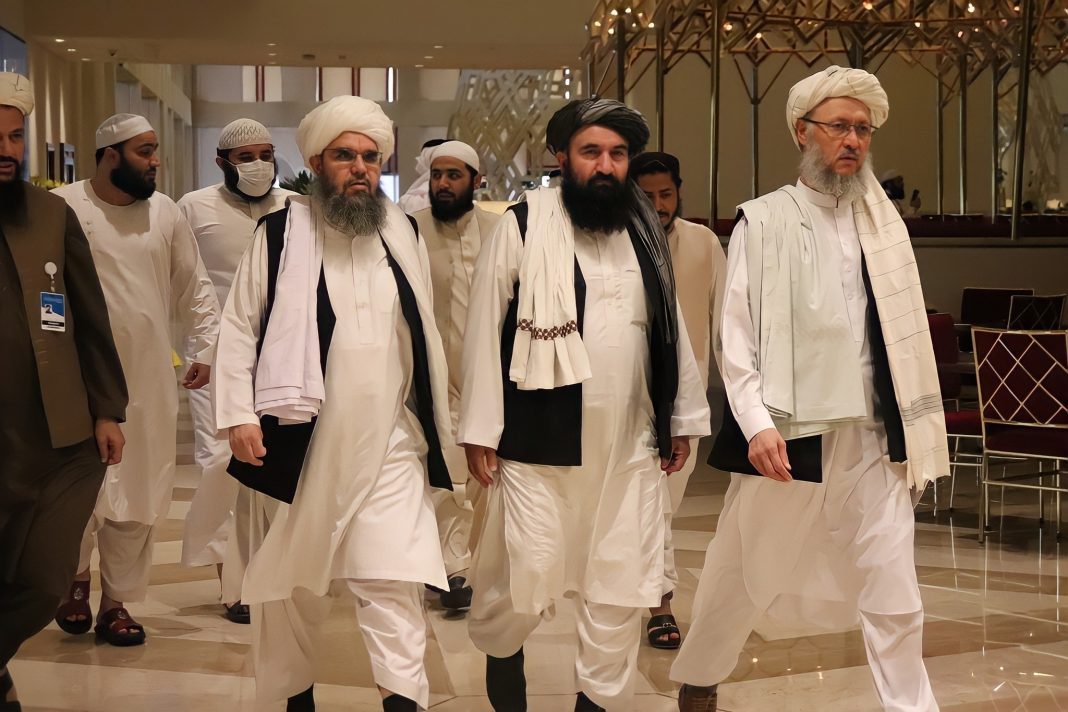Washington ruled out normalising with the Taliban-led administration during the upcoming meeting.
The United Nations is seeking the Taliban’s participation in its upcoming conference on Afghanistan, scheduled to take place in Qatar on February 18, Voice of America (VOA) reported on Wednesday.
“An important aspect of the event is the intention to provide the opportunity for the special envoys to meet collectively with Afghan stakeholders, including representatives of the de facto authorities and Afghan civil society participants, including women,” Stephane Dujarric, the UN secretary-general’s spokesperson, told VOA.
The upcoming two-day meeting is the second to take place in Qatar in less than a year, though no Taliban officials were invited at the time. The agenda will primarily focus on international engagement with the current Taliban-led administration.
The previous meeting in May 2023 occured nearly two years after the Taliban took over Kabul on August 15, 2021 following a series of territorial gains in the country.
Afghanistan’s former president Ashraf Ghani fled the country at the time as Western forces completed a chaotic exit following a deadly 20-year war. The Taliban-led administration has not been formally recognised by any country.
Since its takeover, the acting Afghan government imposed restricting policies on women and girls, despite initially promising a more open rule when they assumed power.
Females have since been unable to work or receive education, sparking major concern among the international community and rights organisations.
The upcoming meeting also follows the UN Security Council’s resolution last December requesting the appointment of a special envoy for Afghanistan.
Acting Afghan Foreign Minister Amir Khan Muttaqi said on Wednesday that the Taliban would only attend the meeting in Doha if recognized as Afghanistan’s official representatives.
He added that the Taliban “are in close contact” with UN officials and had shared their views on their participation, VOA reported, citing his office’s statement. The remarks came during a meeting with Russian Ambassador Dmitry Zhirnov in Kabul.
“If there is an opportunity for high-level meaningful consultations between [the Islamic Emirate of Afghanistan (IEA)] and U.N. regarding all issues of Afghanistan, and the IEA is able to duly fulfil its responsibility as the representative of Afghanistan, then the Doha meeting would be a good opportunity,” Muttaqi was quoted by his office.
Muttaqi was referring to the Taliban administration’s official title, the Islamic Emirate of Afghanistan.
“If the IEA conditions are not taken into consideration, nonparticipation would be preferred,” he said.
On Monday, Washington confirmed the attendance of its Special Representative for Afghanistan, Tom West, and Rina Amiri, the special envoy for Afghan women, girls and human rights.
White House National Security Communications Advisor John Kirby ruled out normalising with the Taliban administration through the conference.
“There are no efforts by the United States government to, quote, unquote, ‘normalise,’ as you put it, or to recognise the Taliban[…]we’ve said it numerous times, if they want to be seen as legitimate rulers, they need to meet all the commitments that they said they would meet and make,” Kirby told the White House on Monday.
“And they haven’t done that,” he added.
Qatar, which has served as a diplomatic bridge between the U.S. and the Taliban over the past decade, hosted a rare direct meeting between the U.S. and Taliban in July 2023, where the former expressed its openness to technical dialogue with the acting Afghan government.
Qatar had paved the way for dialogue when it first opened the Taliban’s office on its lands in 2013 at the request of the U.S.
When the Taliban took over Kabul, Doha had played a more pivotal role by evacuating more than 100,000 Afghans and foreigners from the country. The mass evacuations have been described as history’s largest airlift of people.
Aside from hosting meetings between the Taliban and the West, Qatar, among other Muslim countries, has repeatedly expressed concern over the interim government’s decisions regarding women and girls.
In January 2023, Qatar’s current prime minister Sheikh Mohammed bin Abdulrahman Al Thani said he spoke to the Taliban to understand the rationale behind the restrictive policies towards Afghan women and girls.
“It’s more and more provoking and making the situation much worse for them and for the Afghan people; we’ve been trying to reach out recently after these decisions [were taken]. We’ve [also] been trying through other means jointly with other Muslim countries to talk to them,” Sheikh Mohammed said at the time.
The Taliban have tightened restrictions on the daily lives of all females over the past two years under a governance approach reminiscent of their former rule between the 1990s and 2001.
In March 2022, they decided to ban girls from attending school on the day the institutions reopened.
Girls who had shown enthusiasm for the new school year at the time, the first since the Taliban’s takeover, were turned away and forced to go home.
Afghanistan’s humanitarian situation has deteriorated due to the loss of foreign assistance and decades of conflict.
A Human Rights Watch report on Wednesday detailed the multiple crises facing Afghanistan.
More than half of Afghanistan’s 42.2 million population will need humanitarian assistance this year, according to a UN estimate.
“The loss of foreign development aid and Taliban rights violations have caused a catastrophic health crisis in Afghanistan that is disproportionately harming women and girls,” Fereshta Abbasi, Afghanistan researcher at HRW, said.
HRW urged the UN to press the Taliban in the upcoming Doha meeting to lift all restrictions in place.
“The special envoys should also address structural problems that have undermined Afghanistan’s economic stability, including those affecting water management, electrical supply, and the banking system,” HRW added.







